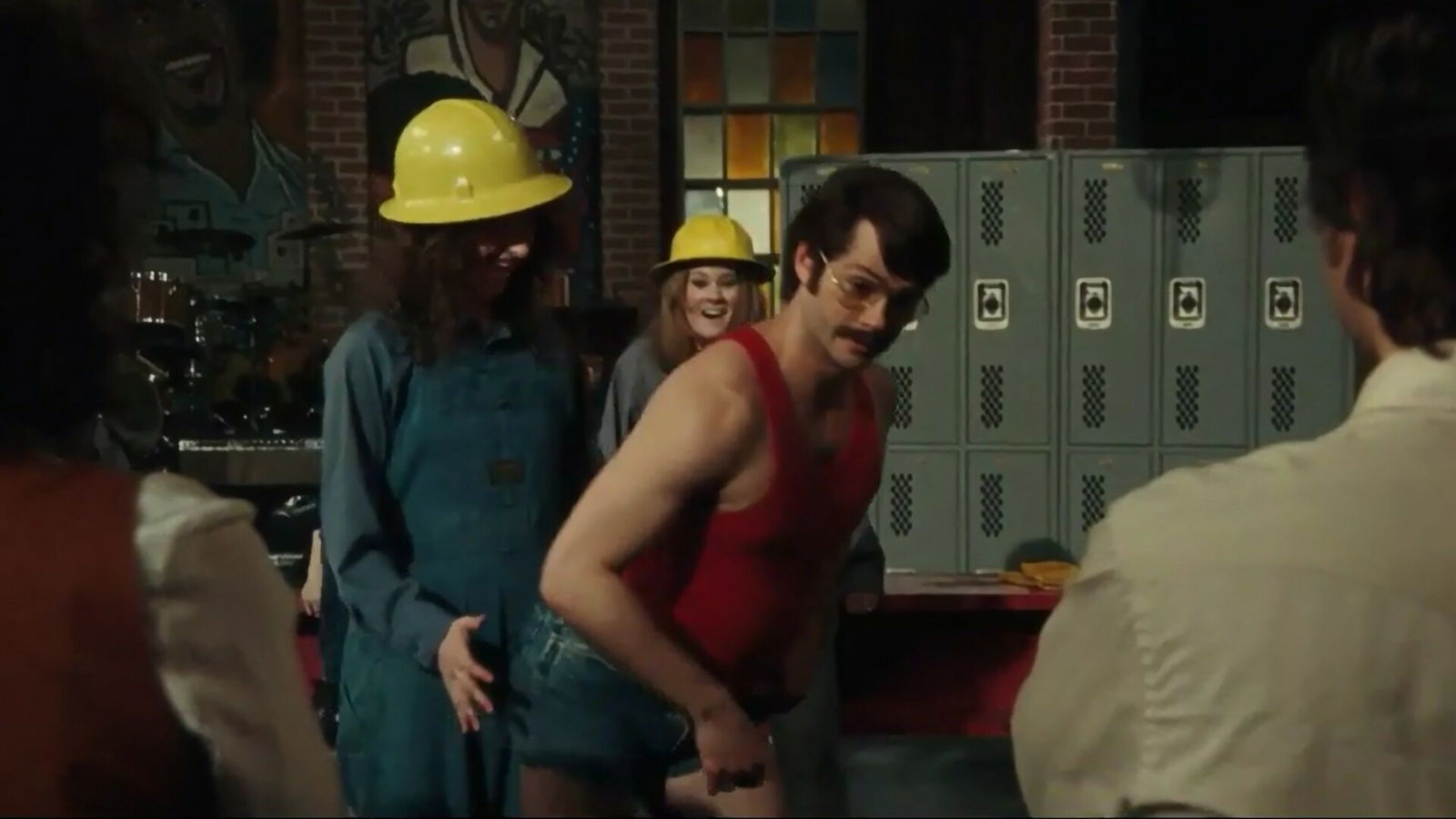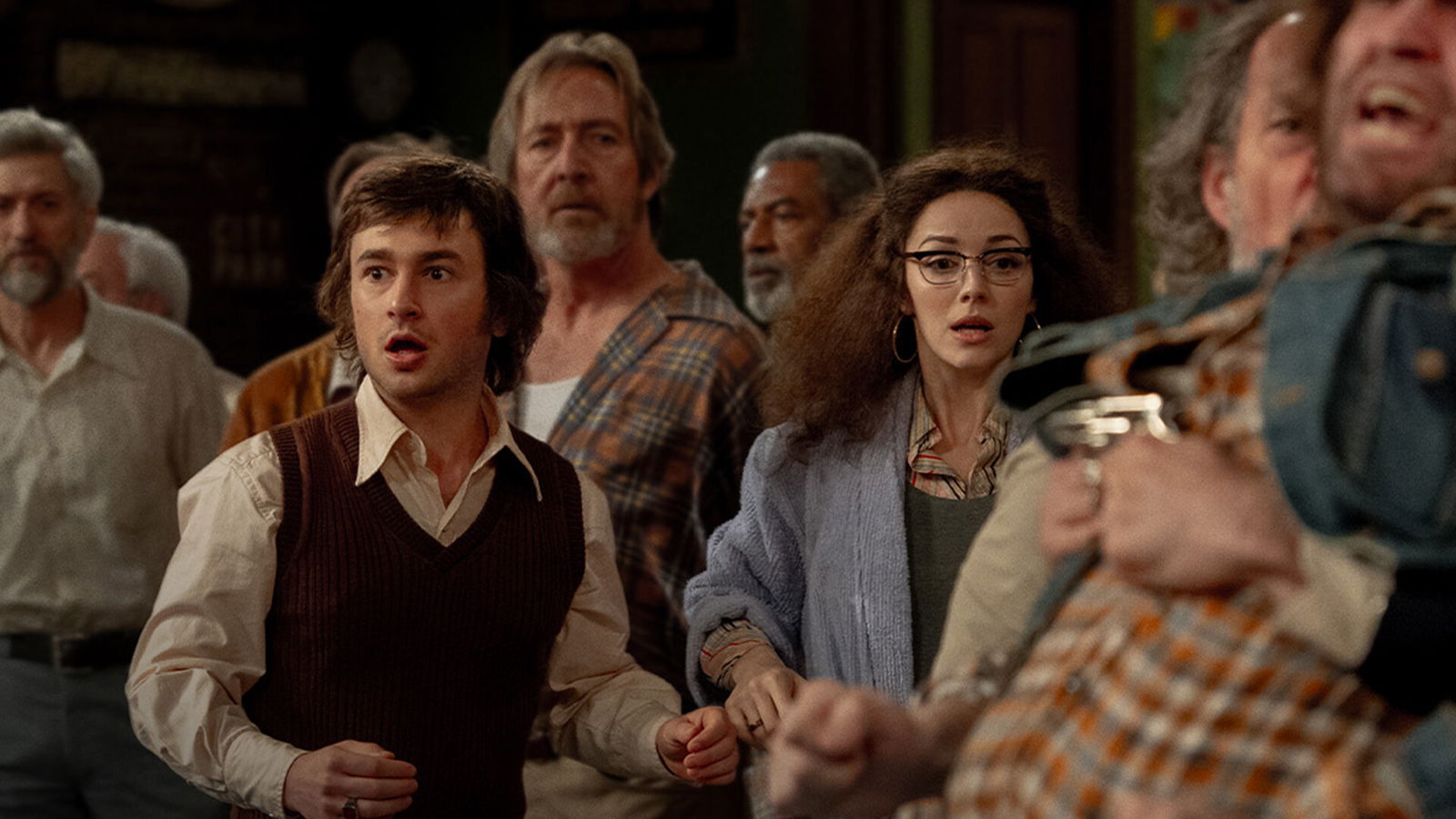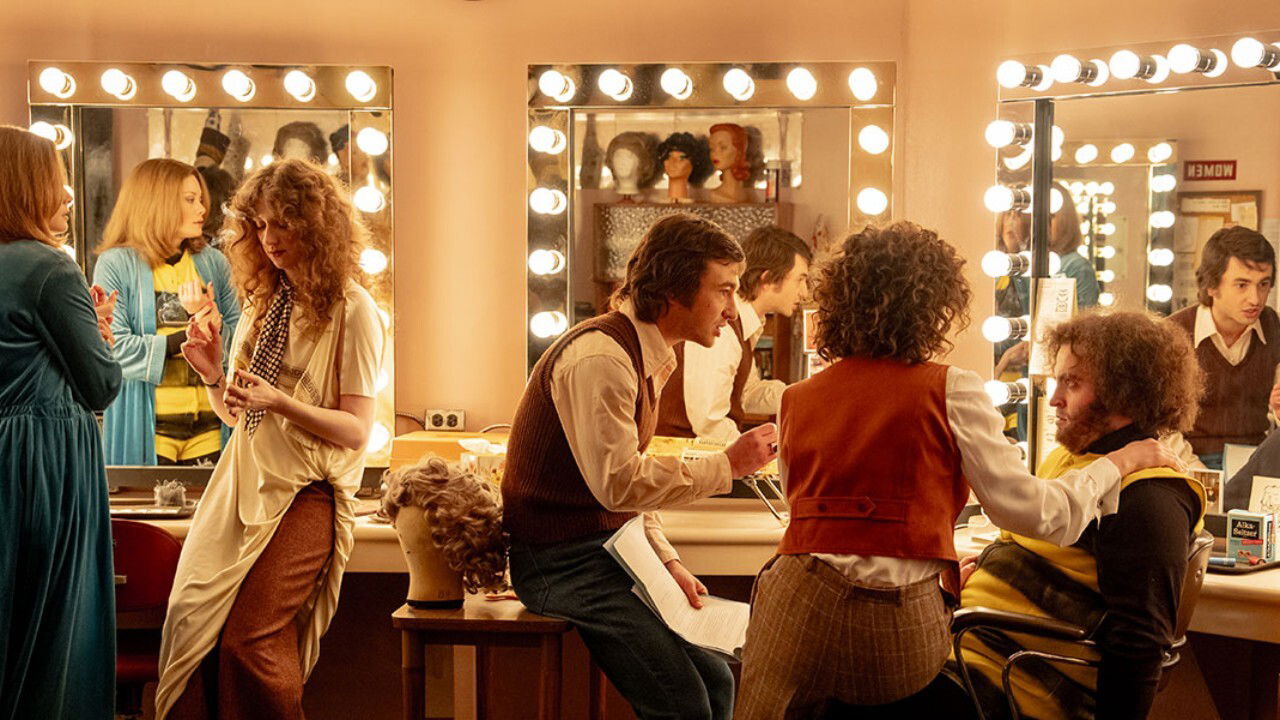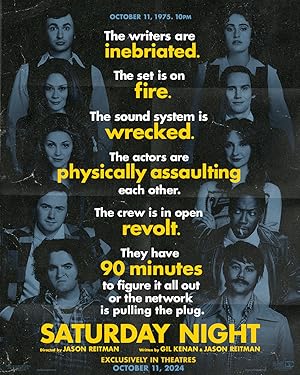Director, producer, and writer Jason Reitman (Ghostbusters: Afterlife, Juno) pays homage to the inception of Saturday Night Live (SNL) as its 50th anniversary approaches next year. The NBC show is arguably one of the longest-running television programs, known for its ability to shift culturally and counter-culturally while entertaining audiences. It has hosted some of the greatest comedians of the 20th and 21st centuries, as well as top musical artists. At the centre of it all is Canadian mega-producer Lorne Michaels (The Kids in the Hall).
Set in 1975, the 1 hour and 49-minute film is a dramatic recreation of the 90 minutes leading up to the premiere of NBC’s Saturday Night, which would later become Saturday Night Live. The film features portrayals of celebrities such as Chevy Chase (Corey Michael Smith), Dan Aykroyd (Dylan O’Brien), John Belushi, Jim Henson, Billy Crystal, Lorne Michaels, and Jane Curtin.
The film paints a vivid picture of the mid-1970s, a time when major events in America—Watergate, Vietnam, and the rise of counterculture—left the old systems feeling broken and the new ones frightening. As the clock ticks down, another certainty is about to be shattered. In 90 minutes, viewers will hear the iconic words: “Live, from New York, it’s Saturday Night.”

The film opens with an iconic quote from Lorne Michaels: “The show doesn’t go on because it’s ready; it goes on because it’s 11:30.” This quote perfectly encapsulates the essence of Saturday Night Live—both then and now. It also reflects the immense pressure Michaels faced in getting the show on air that night. Each story beat conveys a palpable sense of stress, similar to the intensity seen in The Bear, but focused on putting together a live TV show in the hour and a half before going on air.
The cinematography is a standout, especially with the use of the Arriflex 416, which creates a grainy film style reminiscent of The Walking Dead. This graininess enhances the nostalgia of Saturday Night. The film expertly uses tight shots, capturing everything from the opening oner to the claustrophobic rooms packed with network executives, props, costumes, and studio equipment.
The opening sequence is particularly strong, as it quickly introduces the main comedians, writers, and crew working on the first live episode of Saturday Night. These elements blend seamlessly, heightening the tension and complementing the performances of the actors.
“Each story beat conveys a palpable sense of stress, similar to the intensity seen in The Bear, but focused on putting together a live TV show in the hour and a half before going on air.”
While some of the actors didn’t exactly resemble their real-life counterparts, they captured the mannerisms and speech patterns remarkably well. Corey Michael Smith’s portrayal of Chevy Chase was especially striking, nailing Chase’s edgy comedic style—one that might get him “cancelled” in 2024. Willem Dafoe (Beetlejuice, Kinds of Kindness) also delivered a standout performance as NBC’s vice-president of talent relations. His portrayal of a cutthroat network executive was sharp and commanding, bringing a palpable sense of authority to the role.
The set design and costume department also deserve recognition. They perfectly recreated the skits from the original live show episode. Anyone familiar with that first episode of Saturday Night would easily recognize the sketches and materials that were faithfully reproduced.

The score paced the story effectively, incorporating the jazzy notes of late 1970s New York City. Jon Batiste (Soul) composed the film’s music and also starred as the iconic musician Billy Preston. His ability to capture the rhythms of the drums and the upbeat piano was reminiscent of the modern jazz in Pixar’s Soul, while staying true to the jazz of the era. The score complemented Lorne’s psychological unravelling and eventual reconstruction throughout the film.
“Reitman’s Saturday Night successfully delivers its message, overcoming network struggles and creative differences, showcasing revolutionary comedians in their element.”
What made Saturday Night truly special was its exceptional attention to detail in capturing the multitude of story beats from various characters in such a fast-paced manner. The film’s pacing mirrored the frantic energy of the storyline, making audiences feel like they were experiencing the most chaotic 90 minutes of anyone’s life. Those who were fortunate enough to attend the live taping of the first episode will recall the sensation of witnessing a show that had never been done before, breaking into the television landscape for the first time.
By the end of the 90-minute whirlwind through 1975 New York City, Reitman’s Saturday Night successfully delivers its message. It overcomes network struggles and creative differences, showcasing some of the greatest revolutionary comedians of the time in their element. The film leaves modern audiences with a sense of a bygone era—one filled with off-colour jokes and debauchery that would be frowned upon today. This humour has influenced generations of comedians, and for those who experienced it live, the film serves as a vibrant supplement to their memories of watching the first episode of Saturday Night (Live).
Check out more of CGMagazine’s TIFF 2024 coverage here throughout the festival.






